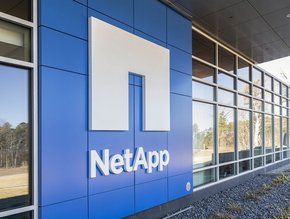KPMG CEO Outlook: Hybrid working debate and ethics of gen AI

Almost two-thirds of business leaders predict a full return to in-office working by 2026, according to KPMG’s annual survey of more than 1,300 CEOs of the world’s largest businesses.
The KPMG 2023 CEO Outlook survey, conducted in August and September of this year, also revealed that geopolitics and broader political uncertainty are the greatest risk to business growth today.
While confidence in the global economic outlook over the next three years remains broadly similar to last year (73% compared to 71% last year), there has been a shift across CEOs’ views on what constitutes a risk to their business.
“We know that what CEOs really want is certainty to support long term-business planning. And to stay ahead and build a stable business for the future, most are chasing that competitive edge for their firms and their clients, including better digitisation,” Jon Holt, Chief Executive of KPMG in the UK, said.
“Despite half of CEOs only expecting a return on investment in three to five years they are investing heavily in generative AI, while also sticking to their sustainability efforts and continually debating the return to office question.”
The debate over hybrid working and the return-to-office continues
CEOs are increasingly steadfast in their support of pre-pandemic ways of working, with 64% predicting a full return to in-office work within the next three years. And 87% of CEOs surveyed express a likelihood of linking financial reward and promotion opportunities to a return to in-office working practices.
“This isn’t a one-size fits all approach,” Holt commented. “And issuing an “all hands on deck” edict is a simple response to a complex issue – it won’t work for all businesses. Some sort of hybrid working is likely to remain a useful way to attract and retain the good people the CEOs know their business needs. Having the right employee value proposition to attract and retain talent is near the top of the priority list for CEOs in our survey.
“The wellbeing of younger colleagues is a particular issue here. They’re a generation whose early work experience has been defined by Covid and the cost-of-living squeeze. As leaders, we have a duty to nurture and support their careers and wellbeing. And spending at least some of their time in the office is likely to be good for those younger colleagues.
“There’s no denying that remote working v back to the office can create tensions between leaders and employees. These are big issues with big impacts on our lives. But CEOs hoping to return to an all-office world will have to work collaboratively and carefully with colleagues to get it right.”
CEOs continue to prioritise ESG despite polarising discourse
Despite a year of polarising debate surrounding the term ESG, CEOs recognise that delivering against the environmental, social and governance issues remains an integral part of their business operations and long-term corporate strategies. This is supported by 69% of CEOs who have embedded ESG into their business as a means of value creation.
Reflecting a shift in awareness and dialogue on ESG, 35% of CEOs have changed the language they use to refer to ESG both internally and externally. This signals a trend towards CEOs getting more specific about each aspect of the acronym and prioritising their efforts where they can have the most impact.
However, globally CEOs believe that they are still a few years away from seeing a return on their ESG investment. Those surveyed believe that ESG will have the greatest impact over the next three years on their customer relationships, brand reputation and M&A strategy.
CEOs understand that their role continues to be increasingly driven by public and investor pressure, with 64% believing that, as trust in some institutions decline, the public expects business to fill the void of societal changes.
Ethical challenges surround generative AI but are not stifling investment
The findings show that CEOs are continuing to invest heavily in generative AI in search of a competitive edge for the future, listing the technology as a top investment priority in the medium term. Seventy percent of CEOs agree that generative AI remains high on their list of priorities, with most (52%) expecting to see a return on their investment in three to five years.
Despite a willingness to push forward with their investments, global CEOs cited ethical challenges as their number one concern in terms of the implementation of generative AI. The cost of implementation (55%) and a lack of regulation and technical capability (50%) followed.
“When it comes to generative AI, CEOs are stuck between a rock and a hard place; they are eager to reap the benefits of the technology, yet regulatory and security concerns are holding them back from extracting the most value from it,” Ian West, Head of KPMG’s TMT Practice in the UK, said.
“However, many businesses are already looking at ways they can use generative AI more securely, for example, developing their own LLMs for internal use. This gives me optimism that some of their concerns will be alleviated as their knowledge and experience of the technology improves.”
******
For more insights into the world of Technology - check out the latest edition of Technology Magazine and be sure to follow us on LinkedIn & Twitter.
Other magazines that may be of interest - AI Magazine | Cyber Magazine.
Please also check out our upcoming event - Cloud and 5G LIVE on October 11 and 12 2023.
******
BizClik is a global provider of B2B digital media platforms that cover Executive Communities for CEOs, CFOs, CMOs, Sustainability leaders, Procurement & Supply Chain leaders, Technology & AI leaders, Cyber leaders, FinTech & InsurTech leaders as well as covering industries such as Manufacturing, Mining, Energy, EV, Construction, Healthcare and Food.
BizClik – based in London, Dubai, and New York – offers services such as content creation, advertising & sponsorship solutions, webinars & events.
- HPE: Businesses Must Tackle Blind Spots in AI StrategiesIT Procurement
- Microsoft Invests $1.7bn in Indonesia's Cloud and AI FutureCloud & Cybersecurity
- Flexential: Momentum Report Highlights Hybrid IT InnovationCloud & Cybersecurity
- Dell Technologies: Firms Expect AI to Transform IndustriesAI & Machine Learning






